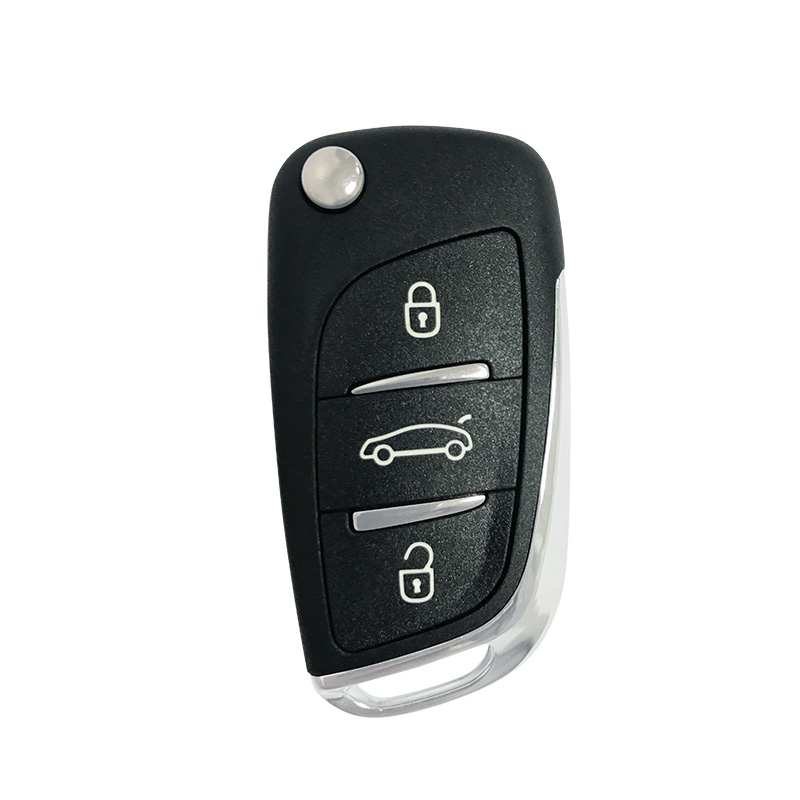Car key factories play a crucial role in the automotive industry, providing essential components that enable vehicle access and ignition. However, the process of distributing keys to automotive manufacturers or dealerships involves intricate logistics and coordination to ensure timely delivery and efficient supply chain management. Let's delve into how car key factories handle the distribution and supply chain logistics of delivering keys to their destination points.

1. Manufacturing Planning and Forecasting
The distribution process begins with manufacturing planning and forecasting, where car key factories analyze demand projections from automotive manufacturers and dealerships. By understanding market demand and production schedules, factories can optimize production levels and allocate resources efficiently to meet the needs of their customers. Accurate forecasting minimizes inventory stockouts and excess inventory, ensuring smooth distribution operations.
2. Production and Inventory Management
Once production schedules are established, car key factories commence manufacturing operations to produce the required quantity of keys. Inventory management systems track key production levels, raw material supplies, and work-in-progress inventory to maintain optimal inventory levels. Just-in-time (JIT) manufacturing principles are often employed to minimize inventory holding costs and improve production efficiency.
3. Quality Control and Testing
Quality control is paramount in the production of car keys to ensure reliability, durability, and compatibility with vehicle systems. Car key factories implement rigorous quality control measures, including visual inspections, functional testing, and performance validation, to identify and rectify any defects or discrepancies. Keys that meet quality standards are prepared for packaging and distribution, while defective units are either repaired or discarded.
4. Packaging and Labeling
Once keys pass quality control checks, they are packaged and labeled according to customer specifications and shipping requirements. Packaging materials are chosen to protect keys from damage during transit and storage, utilizing secure packaging designs to prevent tampering or unauthorized access. Each package is labeled with relevant information, including product codes, serial numbers, and barcodes for accurate tracking and identification.
5. Transportation and Logistics
Car key factories collaborate with transportation and logistics partners to coordinate the shipment of keys to automotive manufacturers or dealerships. Transportation modes vary depending on factors such as distance, urgency, and cost considerations. Common transportation methods include road freight, air freight, and sea freight, with logistics providers managing the entire transportation process from pickup to delivery.
6. Customs Clearance and Documentation
For international shipments, car key factories handle customs clearance and documentation requirements to ensure compliance with import/export regulations. Export declarations, shipping manifests, and customs documentation are prepared and submitted to customs authorities to facilitate smooth clearance of goods across borders. Proper documentation reduces the risk of delays or disruptions in the supply chain.
7. Distribution and Delivery
Upon arrival at their destination points, car keys are received by automotive manufacturers or dealerships and integrated into their supply chains. Distribution channels may vary, with keys being delivered directly to assembly plants for installation in new vehicles or to dealership locations for aftermarket sales and service. Efficient delivery processes ensure that keys are available when needed, minimizing downtime and disruptions.
8. After-Sales Support and Service
Car key factories provide ongoing after-sales support and service to automotive manufacturers and dealerships, addressing any issues or concerns that may arise post-delivery. This includes warranty support, technical assistance, and replacement key programs to ensure customer satisfaction and maintain long-term partnerships. By offering comprehensive support services, car key factories enhance the value proposition for their customers.
Conclusion
The distribution and supply chain logistics of delivering car keys from factories to automotive manufacturers or dealerships involve careful planning, coordination, and execution at every stage of the process. By implementing efficient manufacturing, packaging, transportation, and after-sales support processes, car key factories ensure timely delivery of high-quality keys to their destination points, contributing to the seamless operation of the automotive supply chain and customer satisfaction.

 Englishen
Englishen











 No.991 Xingxiu Road,Taiwanese Investment Zone, Quanzhou, Fujian Province,P.R.China
No.991 Xingxiu Road,Taiwanese Investment Zone, Quanzhou, Fujian Province,P.R.China +86 13960286508
+86 13960286508
 3D Reality Showroom
3D Reality Showroom
